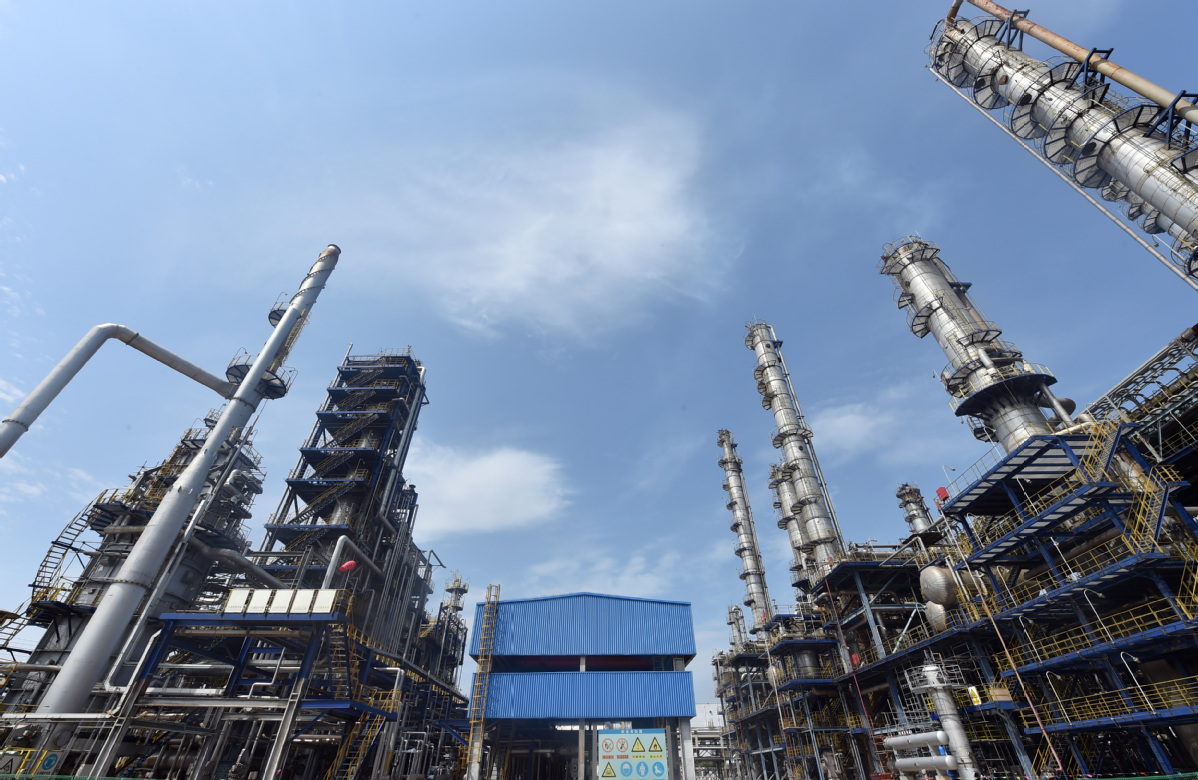Upstream key to energy security


Experts urge efforts to increase reserves, diversify imports to improve overall mix
China should further enhance its energy security by increasing exploration and exploitation of upstream resources and by reducing reliance on external sources for energy, domestic industry insiders said.
Their remarks come amid a widely held view that China's dependence on oil and gas imports has been rising in recent years.
To be sure, China has been stepping up oil and gas exploration to reduce reliance on energy imports. But the outcome of such efforts is yet to materialize as envisaged.
So, the country should increase its domestic energy reserves and also enhance international cooperation to expand and diversify energy imports, said Jiang Xuefeng, deputy head of the Economics and Technology Research Institute, which is a part of China National Petroleum Corp.
China should also continuously deepen energy conservation and fuel substitution, and promote the development of renewables and other clean energy avenues to improve the country's energy mix, Jiang said.
Chinese rising dependence on crude oil and gas imports is expected to further grow in the foreseeable future. Jiang said he expects the import dependency rate for crude oil to exceed 73 percent during the 2021-25 period and that for natural gas to reach 50 percent.
China invested a record 82.13 billion yuan ($11.76 billion) in oil and gas exploration last year, up 29 percent from the previous year.
Investment in the exploitation of oil and gas resources rose to 252.71 billion yuan in 2019, up 24.4 percent on a yearly basis, as the government has been stepping up its investment in the upstream of oil and gas sector in recent years, according to the Ministry of Natural Resources.
The country should also strengthen its influence in the international oil and gas price market as the fluctuations in international markets will directly affect the healthy development of the domestic economy, he said.
ICIS data revealed China's dependency on oil imports has risen to 73 percent in 2019, compared with 71 percent in 2018, 69 percent in 2017, 66 percent in 2016 and 61 percent in 2015. The figure is expected to continue to rise this year, as the dependency rate during the first 10 months was 74 percent.
BloombergNEF data show China's gas dependency rate reached 38 percent in 2017, followed by 43 percent in 2018 and 42 percent in 2019.
Jiang said the oversupply of refined oil also poses a challenge. CNPC's Economics and Technology Research Institute estimates the country's refinery capacity will reach 1 billion metric tons by 2025.
The oversupplied refined oil will likely reach 70 million tons by 2030, most of which will be relying on exports for consumption.
On the other hand, despite the oversupply of refined oil products, China still relies on imports in the high-end refinery sector, Jiang said.
His view is shared by Wang Zhen, head of the Institute of Energy and Economics, which is a part of China National Offshore Oil Corp. Wang also called for stronger risk control capacity to ensure energy security.
Wang said he believes domestic oil consumption is expected to peak by 2025, and domestic natural gas production is to increase to 230 billion cubic meters by 2025 with an import dependency rate of more than 45 percent.
Luo Zuoxian, head of intelligence and research at the Sinopec Economics and Development Research Institute, suggested increasing private foreign investment in upstream oil exploration to better balance the high cost.
He also suggested that China's three oil majors-CNPC, China Petrochemical Corp, which is known as Sinopec, and CNOOC-should consider lowering barriers for more cooperation so as to increase efficiency and lower upstream costs.
Jiang said the country still has not reached its target of oil and gas production during the 13th Five-Year Plan period (2015-20), partly due to oil consumption exceeding estimates.
But he said he is still optimistic about its outlook as energy efficiency improves and the government enhances domestic exploration and exploitation.
Du Xiangwan, honorary director of China's National Expert Committee on Climate Change, said he believes China's energy consumption growth will be mainly provided by natural gas and nonfossil fuels, which include hydropower, wind power, solar power, biomass energy and geotherm, during the next five years.
During the same period, China's annual energy consumption growth rate will be around 2 percent.
While consumption of fossil fuels, especially coal, has powered global economic growth, the most important thing now is to reduce coal consumption to realize energy transition, Du said.
Nonfossil fuels will account for 20 percent in China's primary energy consumption by 2025, up 5 percentage points compared with that in 2019, Du said.




































